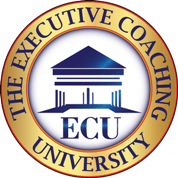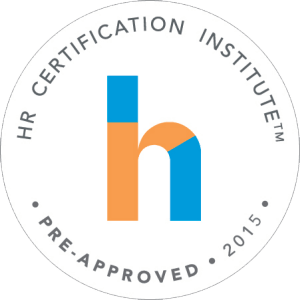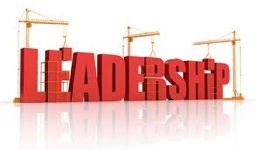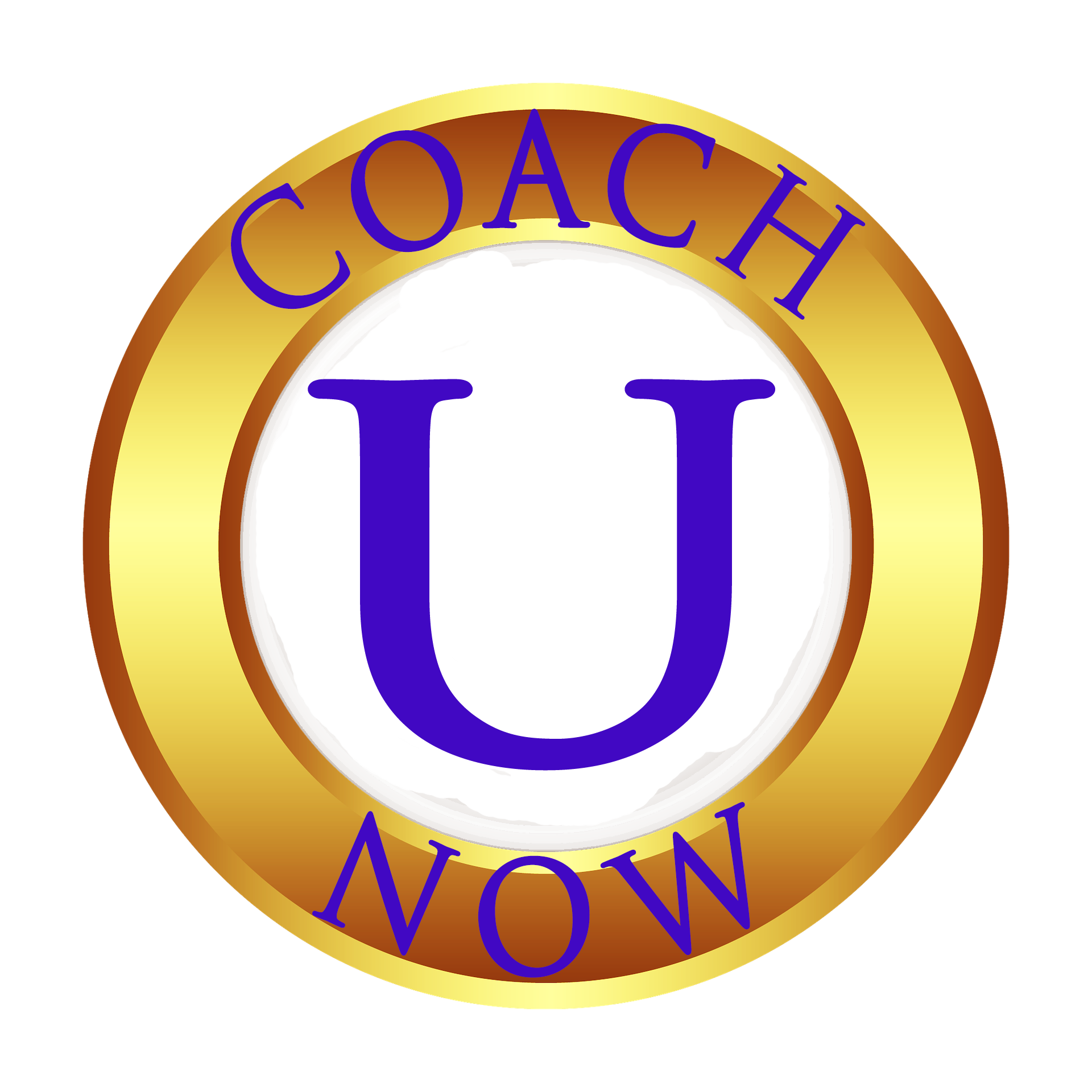State Of The Art Training

All of our training is delivered via webinars and The Executive Coaching University Online Training Center.
In the training center you find discussion groups, class materials, webinars, assignments, and more!
Fully Accredited Programs


ICF Accredited for CCE Hours! We are proud to have earned the CCE (Continuing Coaching Education Provider) designation from ICF.
We are honored to have been Certified by SHRM’s HR Certification Institute.
-
Drayton Boylston +
Click to find out more about our groundbreaking Executive Coaching QuikStart Program
Receive a leadership assessment,… Read More -
Matt Jones +
Matt Jones - Vice President, LMEC
Click here to schedule a session to see if coaching is a good fit for you or give us a ring: 1.800.526.6038
Hey there! Thanks for your curiosity. Here’s a bit more about what makes me tick.
As a thought leader in the mindfulness space, I enjoy working with select individuals like you that are focused on personal and leadership development. We do this by an in-depth exploration of human performance both psychological, and physiological.
Focusing on your unique movement to a life
… Read More -
Scott Sadler +
Are you a business leader who:
- Is frustrated by the ability to hire and retain high performing Millennial employees?
- Is tired of the staggering costs of turnover of staff on all levels in your organization?
- Needs to figure out how to create better knowledge transfer between the different generations while solidifying best practices for leadership development with your Millennials?
-
As your Millennial Mentor Coach I can help!
As an Entrepreneur I have led diverse teams for over 25 years. I came to understand that my business success ALWAYS
… Read More - Is frustrated by the ability to hire and retain high performing Millennial employees?
-
Jenna Forster +
Jenna Forster, Mastermind Executive Coach
Director of Operations and Training. Teacher, Corporate Facilitator, Speaker, Author
Are you a female executive who:
- Wants to improve your ability to influence positive outcomes with maximum impact?
- Desires to strategically activate those around you?
- Aspires to have an identity that matters...and a voice that is heard?
I get it, I’ve been there!
… Read More
Working with women leaders to solidify their contribution to this world is my life’s work.
We will drill down and focus on behavioral shifts that increase your level of success.
- 1
Are You Part of the 99% Commitment Club?

John F. Kennedy said: "There are risks and costs to action. But they are far less than the long range risks of comfortable inaction.”
It is only by being “in action” that we can create the results we want in life, including the creation of an extraordinary life experience and results.
What keeps you from taking action?
Generally it's because you try to be reasonable. You think it through. You stick your toe in the water. You check out how others react. All very reasonable steps to take and I'm certainly not advocating that you do dangerous things. It's just that by being reasonable you run the risk of being distracted by events that have more enjoyment or short-term importance and you get off the track toward what you really want to create.
The shift to commitment!
When you are committed you deal with what's most important to you in your life. As my young adult children would say … DUHHH! It’s so obvious!
For example, imagine knocking on a house door and getting no response, though you feel certain someone is home. You wait a reasonable amount of time, then leave.
Now imagine there is a raging fire being wind driven across the yard towards that same house. Your urgency, your compassion and demand for a result is engaged. You bang on the door while shouting, "Fire! Get out!" Your level of commitment brings action that brings the occupants quickly to the door and their lives are saved.
But what if there is no emergency in your life? What if no external force shouts you into action consistent with your priorities? Then where does your commitment come from?
Creating an extraordinary life requires a 100% commitment. Not 99%.
In practice, 99% is the same as zero. Only 100% commitment will actually bring you the results you want in life. Find a purpose, vision and the actions that deserve a 100% commitment and your entire experience of life will change. Helen Keller said “Life is either a daring adventure or nothing at all.” I suggest that her life is clearly a model of an extraordinary life we could all learn from.
A less serious metaphor is that a woman is either pregnant or not pregnant. There’s no such thing as 99% pregnant. In our lives, we are committed 100% or we are not. There’s no “half committed.”
My commitment to you includes asking some pointed questions so that you can put these ideas into action:
- What are you committed to this month, this year, in your life?
- What life purpose or vision is so important to you that it engages you at physical, mental, emotional and spiritual levels?
- What promise would cause you to tingle with excitement and anticipation?
- What idea would not let go of you until you figured it out?
- What action would automatically bring forth overwhelmingly positive feelings of joy and satisfaction?
- What commitment would mean so much that it would resonate within you at a very deep level; wake you up in the morning; engage you fully?
Comment and let us know of your commitments, your process and your results! Doing so will help you get more clear, acknowledge yourself and inspire all of us!
Robert White is a Transformational Architect for business executives. Founder and CEO of Lifespring, ARC International and Extraordinary People, He’s an experienced entrepreneur, professional speaker, and leadership team trainer.
Want to learn more about gaining powerful leadership skills?
This program can help! Coaching In The Workplace

© 2013 and beyond Executive Coaching University. All rights reserved.
Do Your Priorities Stink?
You may have a task list, you may have meetings lined up, but what are your real priorities?
Lately, I have been amazed at the answers I get when I query executives about their priorities. Many utter a reference to "objectives" that sounds good, but soon they discover that their answers don't clarify what their priorities are for that day. They often are not clear on what actions they need to focus on today that will lead to success tomorrow.
The second revelation is the massive amount of "disconnects" there are within companies over what a person's or team's priorities are, or should be. In training sessions I often focus on aligning a company's priorities in order to achieve their strategic goals. I will take executives through a discovery exercise that goes like this-
I ask the group to list their top 3 priorities. I then ask them to get with the person that they report to or with their teammates with whom they work most closely. They compare their priorities and guess what? Over 50% of the time they don't match! Over half the time their priorities are completely different than those around them. Do you think this might cause some "disconnects?" Imagine, the person that you report to thinks you should be working on "X" and you are working feverishly on "Y." Do you think someone may be disappointed?
There is a huge misalignment here, and it's all based upon assuming (a really dangerous thing to do in any circumstance!) that everyone knows what is important...the real priorities. Don't assume! Ask, verify, and realign!
Business runs at a frenetic pace as you well know. Things pop up daily that divert your focus and therefore may shift your priorities. Over time you can lose sight of the real priorities that lead to the achievement of the bigger goals that you have established.
It all comes down to continual communication about what is important and what has changed on the landscape that may have shifted your priorities.
Steve Pinchotti, CEO of a high tech company, states- "The leadership team in every company must set clear objectives and priorities and review them on a frequent basis. Having the discipline to maintain a priority list enables you to handle new initiatives with minimal disruptions. The expectation that all workers can and will achieve extraordinary results is not realistic unless they know what to work on first."
Don't wait for your review, or board meeting, or any other check in point, to discover that there was a misalignment of priorities. Check with your team and those around you to make sure that everyone constantly knows what the priorities should be.If you and your team have your priorities in sync, the more successful and happy, you, and they, will be.
Leadership is often about focusing on the most basic things. This is one of them.
© 2013 and beyond Executive Coaching University. All rights reserved.

Executive Coaching is for Wimps
As the CEO of a rapidly growing company, I know those thoughts crossed my mind when my COO brought it up as an idea. It seemed to have the stigma of a person going to a shrink and not wanting to talk about it. At the same time, I was intrigued. Behind every great athlete is a great coach. Could it possibly be the same for great executives?
It has been a year and a half since I had those thoughts. I have been working with an executive coach on a weekly basis since then. As a busy executive, the experience has proven to be invaluable and has changed my company and my life. A strong executive coach is not only a one-person board of directors with whom you can vet out strategic and tactical approaches; he/she is also an individual that constantly pushes an executive to perform at a higher and higher level every day.
Executive coaches focus on the individual to ensure that he/she is on top of their game on a daily basis, not just in preparation for the quarterly board meeting. As with any investment, what has been the return so far? In my company, the following tangible results have been achieved directly or indirectly by working with our executive coach:
• A rock-solid foundation of values, vision, and mission.
• A re-organized company that is customer-centric with self-directed, empowered teams.
• More effective leaders – ratings of the leadership capabilities of our executive team increased significantly.
• Improved employee satisfaction – increased over 9% in our latest survey.
• Improved customer satisfaction and product quality.
• Increased profitability by 28%.
• Developed and improved sales capability.
• Launched five new products.
• Ranked as one of the fastest growing technology companies in North America.
Our executive coach now works on a weekly basis with each of my executive staff members and on a regular basis with managers and staff.
Is Executive Coaching for Wimps? No!
Executive Coaching is for those who are courageous and confident enough to push for individual excellence and performance every day.

© 2013 and beyond Executive Coaching University. All rights reserved.
ICF Certification!
We just received word that our flagship Executive Coaching Training Program (CMEC) was approved by the International Coach Federation! We can now award 15 CCEUs (credit hours) toward coaching certifications with the ICF. This is a wonderful compliment to our SHRM certifications.
This is such a beautiful reflection on our entire team. Congratulations to all of you!
Many thanks to all of you for your support over the years. We are so blessed…
You can find details here:
http://www.executivecoachinguniversity.com/
Warmly,
Drayton
Founder and CEO
Coaching in the Workplace
According to Gallop (and other leading survey firms) here is the reality:
- 75% of people wished they had a different job.
- 51% of “A” workers are actively looking for a different job.
- Worker productivity is only at 33%.
- Lack of engagement costs U.S. businesses over $385 BILLION a year!
- 80% of people NEVER use their greatest gifts at work.
What do you think of these smelling salts?!
Coaching can address all of these issues…in fact; it may well be the ONLY thing that can cure these workplace “ills.”
If you don’t have a coaching strategy in your organization, I can guarantee you one thing—these statistics will not go down…
Coaching is the “cure.” Isn’t it time you used coaching to focus on your most important asset…your people?
A. Drayton Boylston
Founder and CEO
Executive Coaching University
© 2013 and beyond Executive Coaching University. All rights reserved.
Do You Lead or Manage?

Are Leading or just Managing?
- More than two million workers say their bosses are so overworked they don’t really have time to manage their staff properly.
- 75% of people wished they had another job.
- 80% of people never use their greatest gifts at work.
Pretty sad facts.
Guess what? They more than likely apply to your organization too.
And...
If you manage people, you own this!
What’s happening within our workforce to make these statistics a reality?
In the United States employee engagement only averages 30%. That's it.
Why?
It comes down to poor leadership.
We have spent so much energy creating “good managers” that we have become disengaged with what it means to be a good leader.
Managing comes from a need to produce an outcome, which of course, is important. However, when we can move to a place of leading those around us the organizational momentum transforms. More than anything employees want to make a contribution. Once they feel that they are, they stay...and they stay engaged. Which boosts your bottom line.
- Leading is about developing the soft skills that are required to inspire and motivate people.
- Managing is about possessing the technical skills required in order to get a job done.
If you have the management skills without the leadership skills your career will plateau at some point. That is a fact.
The soft skills that good leaders possess are going to be in high demand as the battle for top talent continues to increase. Are you ready?
Click here to find out more about Jenna.

Want to learn how to become a better leader? Click here for details.
Coaching In The Workplace - Training for Executives, Managers, and HR Professionals
© 2014 and beyond Executive Coaching University. All rights reserved.
Multitasking to Success? Not Likely!
While our time together progressed, my client must have glanced towards, or checked in some way, her “smart phone” three or four times over the course of our first fifteen minutes.
I commented on her split attention and asked her to turn off the phone and just be focused on our time together for the next forty five minutes – fully focused upon our work. The look on her face would have lead someone not knowing my request, to think I had asked her to do something exceptionally distasteful…maybe even illegal!
Through our discussion around my request it became quite clear that she had NEVER turned off her phone – it was always on. This meant she was always connected, always available, always “on.”
She explained that this level of being available and connected was the status quo at her corporation and essentially had been the status quo since she was at University. “What if I miss something really important?” she asked. “I’m not productive if I’m not juggling a number of issues, projects, or conversations at once!” she stated.
This multitasking misconception arises quite often, especially with high performers who see their success as driven by the ability to do many tasks at the same time.
Yet, there is a downside to always being “on.” Consider:
- “Attention Deficit Trait,” a new condition rampant in the business world, which mimics Attention Deficit Disorder and results from extreme multitasking behavior.
- Researchers at the University of California found it took workers on average, 25 minutes to recover focus and attention after interruptions such as phone calls or answering email.
- Dr. Rene Marois of Vanderbilt University found evidence of a “response selection bottleneck” that occurs in the brain when it is forced to respond to multiple tasks. This results in diminished productivity.
- In a 2008, a piece within the New York Times by Jonathan B. Spira, an analyst with the business research firm Basex, “estimated that extreme multitasking – information overload – costs the U.S. economy $ 650 billion a year in lost productivity.” And that was in 2008!
Is it possible that any of the above might contribute to the 33% worker productivity rate in the U.S? 33%!!!
There are also other, more personal costs. This particular client was referred to me due to increasing conflicts between her staff and those in her chain of command – she had become “hard to work with” and was close to losing the job she so valued.
Additionally, her marriage was on the verge of divorce and she had been diagnosed with digestive/intestinal issues primarily caused by stress.
Coincidence? Not likely!
Sound familiar? Chances are if you are reading this then you have experienced, or know someone close to you who has experienced, a very similar chain of events.
Take time to focus within the moment, express gratitude, and disconnect at least once daily. You will find you are actually more productive, healthier, and happier. Then lead all those around you to do the same!
Greg Styles
Director of Special Projects

© 2013 and beyond Executive Coaching University. All rights reserved.
Turning Leaders and Managers into Coaches
What skills does it take? How is it done? What would a “Coaching Culture” look like? What kind of manager can make the transition?
The question is often asked - “Could our Managers/Leaders become good Coaches?” The answer is - Maybe.
Here’s the reality - Most managers in corporate America are good technicians at what they do. They typically have deficiencies in the “soft skills” area.
Here is where a big distinction needs to be made:
There is a HUGE difference between Leaders and Managers. The difference is that Leaders have mastered the soft/people skills necessary to inspire people to work up to their full potential. Managers often have solid technical skills but don’t inspire others to work toward a collective goal. A symptom of a typical manager is that their people are often in need of a “task with consequences” approach to their work vs. leaders who inspire self motivation for the good of the cause.
Here are the skills that Coaching takes:
1. Desire - a true desire to help others succeed.
2. Awareness - a trust in ones’ intuitive “gut.”
3. Focus - on the individual and their challenges vs. a need to “solve” things for others.
4. Listening - a sincere desire to truly hear what others are saying.
A Coaching culture is typified by these attributes:
1. Respect - you would see interactions that respect the word of the individual.
2. Worth - individuals within these cultures feel valued and appreciated.
3. Real Communication - not your typical “force fed” communication. You would see fully duplexed communication throughout the ranks.
4. Stability and progress - these cultures display more stability and retain their best people better than others. That leads to greater personal and business success.
Corporate Leaders that can make the transition to Coach are those that truly believe in investing in the individual - in time and money. It takes a sincere desire and belief that investments made in people pay off for the company.
Does this resonate with you?
Take good care,

Drayton Boylston
Founder and CEO - Executive Coaching University
http://www.ExecutiveCoachingUniversity.com
© 2013 and beyond Executive Coaching University. All rights reserved.
The Coaching Fallacy - What it is and what it isn’t.
There is much confusion about what Coaching is- and isn’t. Many consulting firms have simply gone through their marketing materials and changed the word “consulting” to “coaching.” For many in the business world, that sums up what they perceive Coaching to be, a new word for consulting.
Nothing could be farther from the truth!
.. Coaching IS NOT about giving advice or consulting. It is not about mentoring. It is not about “helping” others by providing solutions to problems.
.. It IS about working intensely with people, utilizing provocative and powerful questions, to enable people to find answers themselves. At its essence, Coaching is about equipping people with the tools to discern the real issues at work and then to employ the right actions to best deal with the realities that they face.
.. Coaching is not therapy. Coaching should not go anywhere near what is considered the domain of therapists and psychologists. If it does, it’s not coaching. Coaching is not about the past- it is about the present- and the future. Good Coaches know when they are getting near the areas where others need to be called in- and do so.
.. While some Coaching can appear to be ethereal and too “out there” for companies, that is a much different type of Coaching (Life Coaching). There is a distinct form of Executive Coaching that is used in the corporate environment. It is directly tied to personal improvement and increased productivity that in turn pays off handsomely for the organization.
.. Coaching does not “fix” people. It is rare that Coaching can be deployed to “fix” those that deem to be in need of a quick change by their manager.
.. Coaching can have dramatic short term impact. But the reality is that it will take from 6-12 months of quality Coaching to make sustainable changes. Those that tell you that it can be done quicker are not well informed.
.. Coaching is about individual planning, goal setting, and achievement. It’s also about personal discovery and enlightenment. It is about realizing one’s full potential.
With all that being said, Coaching is about so many things that would benefit every company. Coaching helps create stronger and more productive people that are more valuable to the organization!
Be well,
Drayton Boylston
Founder and CEO - Rescue Institute, Executive Coaching University
http://www.executivecoachinguniversity.com
© 2013 and beyond Executive Coaching University. All rights reserved.

